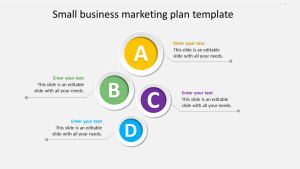
Small Business Marketing Strategies
If you are running a small business and are looking for a new marketing strategy, there are a variety of options available. These options include an inbound marketing, paid media, online reputation management, and value propositions. These techniques are all crucial in growing your business. These strategies are not only effective but also affordable. Paid media Paid media, or advertising, is a key element in your small-business marketing strategy. It includes paid search engine optimization (SEO), display ads, and PPC (pay-per-click) advertising. Paid media can help your business grow revenue in many ways. Paid media, however, is not the only way to advertise. Organic media is content that spreads organically, such as word-of-mouth. Paid media, on the other hand, is a great way to reach people who may have previously been interested in your products or services. This type of advertising is particularly effective when used alongside other forms of media, such as social media. It can also be cost-effective, as the cost of ad placement is determined by the channel and duration of the ad. In addition to the ad placement, other costs include content creation, design, production, and website configuration. Online reputation management If you want to be successful in small business marketing, you must understand the importance of online reputation management. Without a good reputation, a business will make almost no money. In fact, 90% of consumers say that positive and negative reviews influence their decision to buy a product or service. You can make a great first impression with a good reputation, but you also need to avoid making mistakes. One of the best ways to maintain a positive online reputation is to actively engage with your customers. This will help you influence their opinion and the way they talk about your business online. For example, you can ask them to leave a review, or you can post links to review sites. You can also print paraphernalia urging people to leave reviews. It’s important to understand that consumers place a lot of importance on online reviews and rankings, so it’s critical for small businesses to implement strategies that can help them achieve their goals. Fortunately, there are several good reputation management firms that can help you manage your reputation. These companies take the hassle out of managing your online reputation. These companies will respond to reviews, ask for customer feedback, and configure SEO strategies that will promote a positive brand image. This way, you can concentrate on other goals. Value propositions A value proposition is a powerful way to distinguish your business from competitors. Your value proposition must explain to your customer the benefits and value of your product or service. For example, if you offer affordable tax documentation to small businesses, you could highlight this benefit to your customers. In addition, the value proposition must connect to a buyer’s need or problem. When the value proposition and the buyer’s need or problem are aligned, you can differentiate your business from competitors. Creating a value proposition is a process of self-reflection and discussion. The best way to develop a value proposition is to create something your customers want. You don’t need to spend a lot of money on design and marketing. With a little focus and careful consideration, you can create an effective value proposition. The first step is to define your value proposition. It is the reason that your customers should buy from you. Once you have this, delivering on it is easier. However, defining a value proposition can be a challenging task for small businesses. You may have multiple reasons why your customers should purchase from you, but it is essential to clearly define your value and communicate it to customers. Visit our site for more info or help with marketing your one of a kind business!

